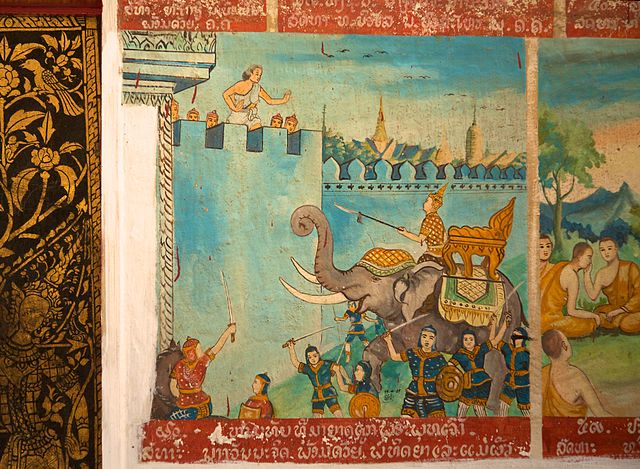
On April 5, 2019, The Thammasat University Faculty of Public Health, Maastricht University (Netherlands), Public Health Institute (Sudan), and Public Health Solutions, Limited (PHS, Hong Kong) present The 6th Annual International Conference on New Voices in Global Health and Development 2019: Globalization and Health Equity.
The one-day interactive event will be held at Piyachart Building II, Klong Luang, Rangsit, Pathum Thani. The conference is meant to provide a forum for new global health approaches and ideas to be considered. Students are also given an opportunity to publish work in relevant journals. Spoken word and poster presentations will be offered on global processes and regional trends; multiple facets of human security; population health and nutrition; violence and the impact on global health; environmental health and climate change; impact of globalization on health equity; and the impact of globalization on indigenous minorities. The keynote address will be given by Associate Professor Kitti Prasirtsuk, Ph.D, Vice Rector for International Affairs, TU.
The vision, mission, philosophy, and core values of The TU Faculty of Public Health are as follows:
VISION:
To become a leading academic institute in public health among ASEAN countries.
MISSION:
- Produce public health graduates that are well equipped with knowledge, capability, virtue, and are well acknowledged by the public.
- Generate research and bodies of knowledge in the field of public health that are well acknowledged at both national and international levels.
- Serve as a center for academic services in public health of Thailand with working networks at national and international levels.
- Promote Thai art and culture, create better understanding of cultural differences by using education as a tool.
PHILOSOPHY:
Develop and produce public health graduates who have honesty, public mind, and social responsibility with the spirit of the public health profession.
CORE VALUES:
Expertise, unity, responsibility, accountability, social responsibility, and service mindedness.
The Faculty of Public Health offers a bachelor of science program in public health at Rangsit campus, consisting of study in occupational health and safety, health promotion, and environmental health. At Lampang Campus, the same program provides study in community health, environmental health, and occupational health and safety. The master of science program in public health at Rangsit campus includes study in the majors of environmental health and safety management, occupational health and safety management, health promotion management, public health services management, and epidemiology and public health information management. At the Rangsit campus, there is also a master of public health (International Program) as part of a collaborative policy between the Faculty of Public Health and the Department of Planning and International Affairs, Ministry of Health of the Lao People’s Democratic Republic (Lao PDR).
Currently, several scholarship students from Lao PDR participate in this program. The master of science program in public health at Lampang Campus consists of study in health promotion management and environmental health management, with weekend classes. International programs for a master’s degree in public health in global health, a master of science degree, and Ph.D. are available in occupational health, ergonomics and safety, and environmental health.
Innovative research
The TU Library has several theses which originated from the TU Faculty of Public Health. These include such research subjects as Demographic and social changes : can we rely on family care for tomorrow’s elderly in Nepal?; Exploring influences of cyber social networks on Myanmar MSM: a pilot study; Healthy system adaptation to malaria control programs to changes in malaria incidence related to climate change over three decades in Nepal; Multidrug resistant tuberculosis in Sub-Saharan Africa: a comparative perspective of policy, governance, and health systems; A review of coastal pollution and its impact on childhood disability and pregnancy outcome: a case study in the coastal area of Bangladesh; and Review of policy conflicts and coherence between WHO Framework Convention on Tobacco Control and WTO agreements.
These publications are shelved in the Boonchoo Treethong Library, Lampang campus; the Nongyao Chaiseri Library, Faculty of Health Sciences; The Pridi Banomyong Library, Tha Prachan campus; Puey Ungphakorn Library, Rangsit campus; and The Thammasat Library, Rangsit campus.

Collaborative efforts
The website of the International Committee of the Red Cross (ICRC) details how it works together with the TU Faculty of Public Health:
We joined hands with the Faculty of Public Health at the Thammasat University and the Faculty of Architecture at King Mongkut’s University of Technology Thonburi (KMUTT). At Thammasat, the ICRC teaches a five day course on health care in prison as part of Thammasat’s Global Health Programme, an international master’s degree course seeking to improve awareness of prison health care and stimulate the increase of qualified health personnel and experts working in prisons in Thailand and around the world. This is the first ICRC platform in Asia when it comes to prison health and is contributing to better position the institution as a reference organization in detention… Through these achievements, we have created strong partnerships with universities and managed to place the ICRC as a reference on detention-related matters. Connecting with the youth can indeed make a difference!
The ICRC is a worldwide organization based in Geneva, Switzerland. It employs around 16,000 people in over 80 countries. The website of ICRC Thailand points out that it has been present in Thailand for 40 years, carrying out a range of humanitarian activities in the Southeast Asia region.
As a brochure available for download on its website further indicates,
The ICRC assists people affected by conflict or unrest impartially, neutrally, and independently. In Northern Thailand, the ICRC assists weapon-wounded from Myanmar by covering the costs of medical treatment carried out in Thai hospitals and conducts surgical trainings for Thai medical workers along the Myanmar border. In 2016, first-aid training was carried out with ethnic Karen volunteers from Myanmar for the first time. In Thailand’s Southern Border Provinces, technical and financial assistance for income-generating activities is provided to families whose breadwinner has either died, been seriously injured or been taken into detention due to the situation of unrest. This assistance is also provided to former detainees in order to facilitate their reinsertion into the society. The ICRC is in regular contact with the people most affected by the unrest, monitoring their needs and engaging in a confidential humanitarian dialogue with those involved in the violence, with the aim of mitigating its consequences on the general population. Promoting international humanitarian law The ICRC conducts workshops with Thai academic institutions to simulate interest in international humanitarian law among students. It also promotes humanitarian rules applicable to naval warfare and Maritime Security Operations. Senior naval officers from countries in the Asia-Pacific region, including Thailand, have been supported by the ICRC to participate in the regional workshop on the Law of Armed Conflict at Sea held every year.

(All images courtesy of Wikimedia Commons)

